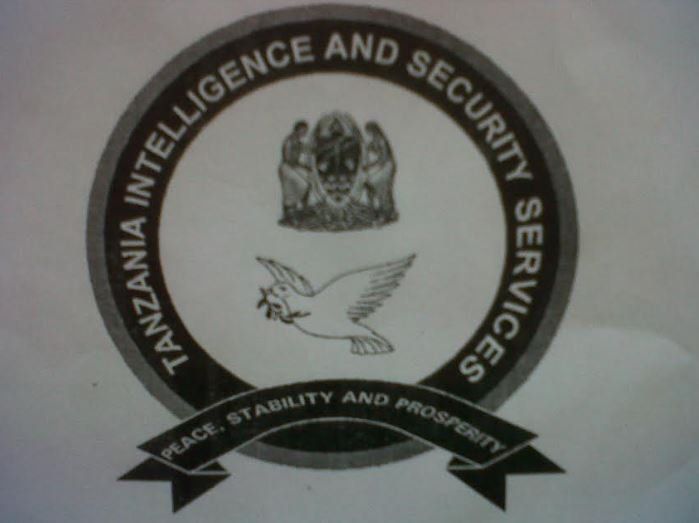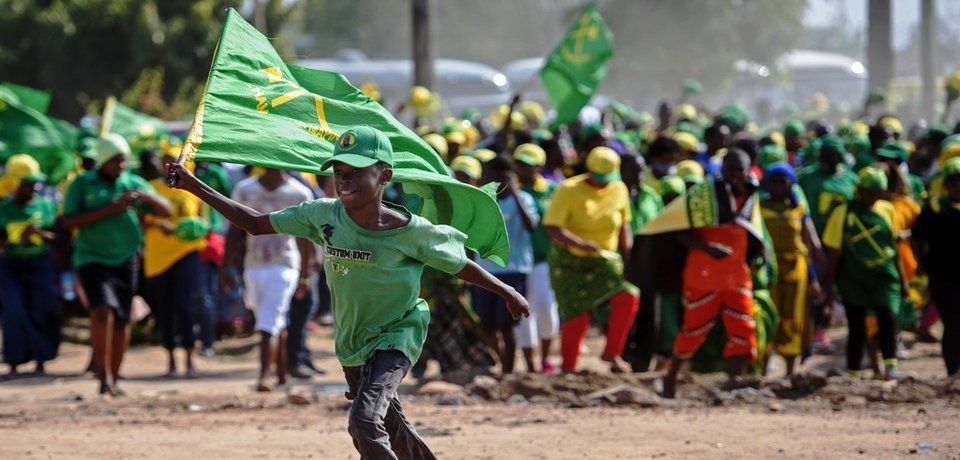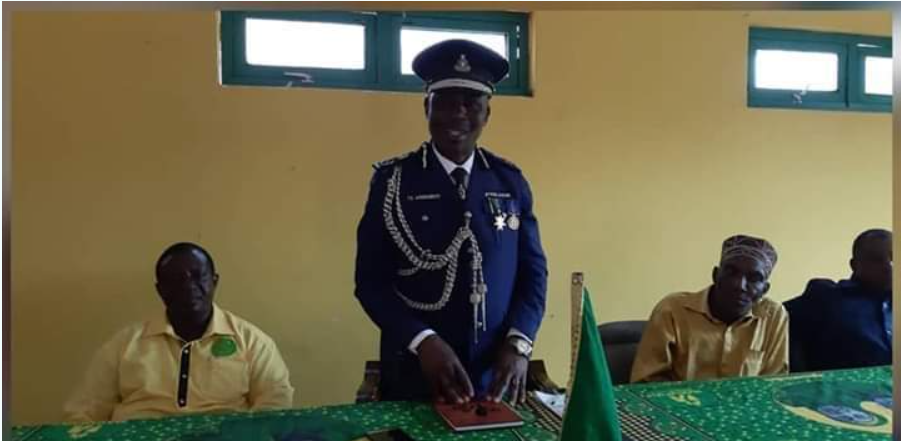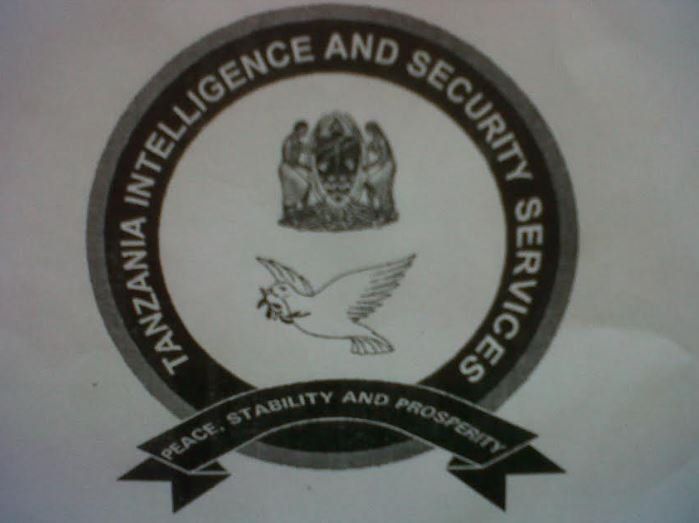How Politicisation of 'Tradecraft' - that's the Art of Intelligence - Could Hinder Tanzania Spy Agency’s Counter-Terror Capabilities.

Analysis by Evarist Chahali, intelligence analyst.
This paper, a work in progress, examines relations between the Tanzania Intelligence and Security Services (TISS), ruling party Chama Cha Mapinduzi(CCM), the opposition and the public, and how they impact the spy agency's readiness of dealing with existing and future terror threats.
Press conference from the shadows
On November 5, 2010, the then Deputy Director General of the Tanzania Intelligence and Security Services (TISS), Jack Zoka, held a historic press conference in which he denied accusations levied against the spy agency by main opposition party, Chama cha Demokrasia na Maendeleo (Chadema).

It was historic because never in the East African nation’s history had the exceedingly secretive spy agency gone public. During the press conference, Zoka refuted Chadema’s accusations made by the party’s Presidential candidate in the 2010 general election, Dr Wilbrod Slaa, that TISS was plotting to rig the election in favour of the then incumbent, ruling party Chama cha Mapinduzi (CCM)’s candidate Jakaya Kikwete.

Two years later, same Zoka did another press conference, this time refuting allegations that the spy agency was behind an incident involving Dr Steven Ulimboka, then chairperson of the Medical Association of Tanzania, who was abducted from his home, beaten, and dumped in a forest near the main city, Dar es Salaam.

Both news conferences did little to quell long-held negative attitudes towards TISS, which have gained currency in post-1992 political reform Tanzania.

TISS vs the Opposition from the early days
Tanzania adopted plural politics in 1992. The first multiparty election in 1995 saw a spy-turned-politician, Augustine Mrema, ex-Deputy PM, standing at the main opposition party NCCR-Mageuzipresidential candidate, after he defected from the ruling party. Mrema lost the election, and it did not take long before he was embroiled in a bitter inter-party fight, which eventually led to him to quit and joined Tanzania Labour Party (TLP).

There were perceptionsthat the former intelligence officer joined NCCR-Mageuzi on instruction from TISS with a mission to destroy the opposition.
The following elections, in 2000 and 2005, were dominated by complaints from the opposition that the ruling party was being helped by TISS to steal their votes. However, it was the 2010 election that saw the spy agency coming out from the shadows to defend itself. The 2015 and 2020 general elections were no different.
Is TISS pro-CCM?
Reliable contacts have noted that there exists a symbiotic relationship between the intelligence agency and the ruling party. On the one hand, under CCM’s leadership, TISS has been able to operate without oversight from the government. Because Tanzania is still a hegemonic political regime, the ruling party is more powerful than the government.

On the other hand, according to sources, the spy agency treats the ruling party remaining in power as a matter of utmost importance to national security.
However, the relationship has even deeper roots. According to sources, the spy agency played a crucial part in the formation CCM in 1977 from union between Tanzania Mainland’s TANU (Tanganyika African National Union) and Zanzibar’s ASP (Afro Shirazi Party).
Pre-1992 political reform environment still exists
While the political reforms in 1992 saw the introduction of multipartyism, and there are now nineteen registered political parties in the country, such a constitutional requirement that security organs should not engage in political activities is not fully adhered to. It is surprise, for instance, that the Police Force has earned a moniker “poli-CCM” (portmanteau of police and CCM) because of their perceived favouritism to the ruling party amid infringing the rights of the opposition.

President as de-facto TISS chief and ruling party chairperson.
The President of Tanzania is known in intelligence circles as the sponsor, i.e., the main “consumer” of intelligence reports from TISS. The same president is also the chairperson of the ruling party CCM. With no oversight, there is virtually nothing to stop the president to use the intelligence from the spy agency for the interests of CCM. Likewise, Regional Security Officers (RSOs) and District Security Officers (DSOs) collaborate closely with ruling party’s regional and district leadership, respectively.
Schadenfreude?
Two recent terror-related events in Tanzania, could serve well in explaining the hurdles in intelligence gathering as a result could affect TISS’ capabilities in dealing with existing and future terror threat.
The incident on October 15, 2020 in which Islamic State (IS) fighters in Mozambique staged their first claimed attack into southern Tanzania, killing at least twenty people in Kitaya, Mtwara Province, and the August 25, 2021 killingsof three police officers and a private security guard, in the embassy district of Dar es Salaam before the assailant was shot dead, were “celebrated” by some Tanzanians on social media.

In the latter incident, some supporters of Chadema, whose chairperson Freeman Mbowe, has been charged with terrorism-related offences, reminded security organs to after “real terrorists,” reflecting on the charges being politically motivated.

How politicisation of tradecraft, that's the art of spying, could hinder TISS’ capabilities to deal with terror threats

The growing irrelevance, uselessness and unpopularity of the increasingly reactionary security organs in Tanzania, including TISS, is making it difficult to effectively collect relevant intelligence regarding existing and future terror threat.
Effectiveness of any intelligence service heavily depends on its ability to recruit of new sources, which could be difficult with current anti-TISS sentiments.
It is conceivable to think that those who plans to put Tanzania in harms way could find support in such an environment in which security organs, like TISS, are seen as enemies of the people.
To be continued
